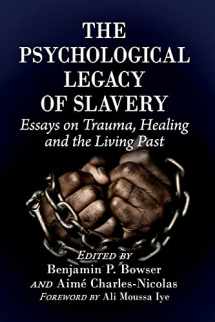
The Psychological Legacy of Slavery: Essays on Trauma, Healing and the Living Past
Book details
Summary
Description
This collection of essays surveys the practices, behaviors, and beliefs that developed during slavery in the Western Hemisphere, and the lingering psychological consequences that continue to impact the descendants of enslaved Africans today. The psychological legacies of slavery highlighted in this volume were found independently in Brazil, the U.S., Belize, Jamaica, Colombia, Haiti, and Martinique. They are color prejudice, self and community disdain, denial of trauma, black-on-black violence, survival crime, child beating, underlying African spirituality, and use of music and dance as community psychotherapy. The effects on descendants of slave owners include a belief in white supremacy, dehumanization of self and others, gun violence, and more. Essays also offer solutions for dealing with this vast psychological legacy. Knowledge of the continuing effects of slavery has been used in psychotherapy, family, and group counseling of African slave descendants. Progress in resolving these legacies has been made as well using psychohistory, forensic psychiatry, family social histories, and community mental health. This knowledge is crucial to eventual reconciliation and resolution of the continuing legacies of slavery and the slave trade.


We would LOVE it if you could help us and other readers by reviewing the book
Book review



